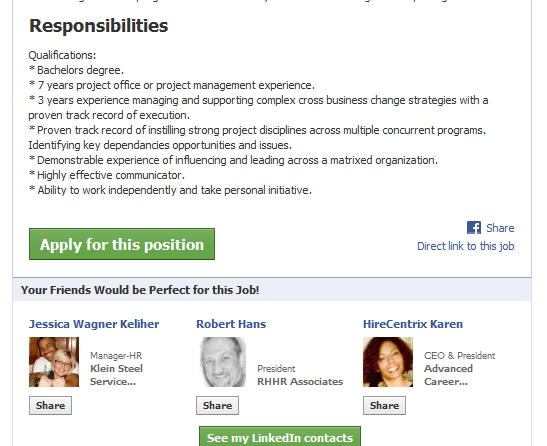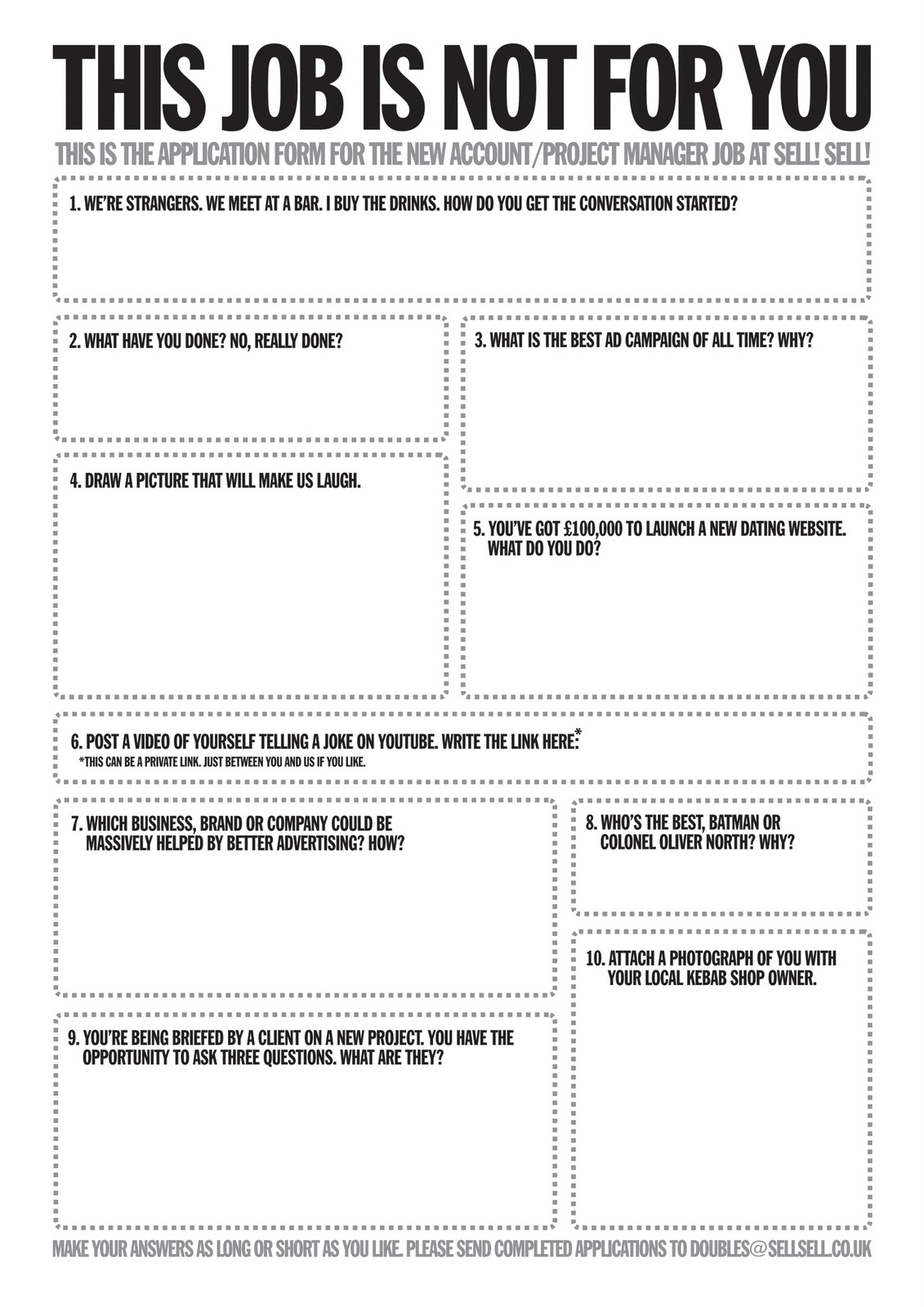'Like' this job on Facebook
At the recent ERE Expo in San Diego, I had a chance to interview Stephane Le Viet, CEO and Founder; and Matt Brown, Director of Business Development of Work4Labs, the company responsible for the popular Facebook recruiting application known as 'Work 4 Us'.
Work 4 Us is a Facebook application that allows organizations to quickly and easily add job listings to their company Facebook page, whether by automated import from the company ATS or career site, or via manual entry. Once imported or entered, the company can then leverage the social sharing capabilities inherent inside Facebook (individual jobs can be shared and 'liked'); and the supported integration with the Facebook advertising platform allows the creation of more precise ad campaigns designed to get the company job listings noticed by the target candidate audience on Facebook. Tracking and analytical tools allow the organization to assess and evaluate the reach and success of their job posting campaigns.
That's assuming the desired candidate pool is on Facebook. And considering that pretty much everyone these days from your 12-year old nephew to your 83-year old Grandma seems to be on Facebook it is a pretty good bet that at least some of your desired candidates are out there.
Work4Labs claims over 6,000 organizations have installed the Work For Us application to date, with large, multi-nationals like L'Oreal and Citi among the applications' most notable adopters.
Yesterday the team at Work4Labs announced a new enhancement to the Work For Us application, namely the ability to present the Facebook user that views a job description in the application with a suggested list of Facebook friends, and optionally LinkedIn contacts that might be a suitable match for the job, and perhaps would be interested in the job details. Once authorized, the app processes Facebook and LinkedIn profile data – education, work history, interests, location, and so on – to suggest the most relevant friends for the job.
Sample job listing posted using Work For Us with suggested friends:

This is the kind of functionality, a matching algorithm based suggestion engine, that social recruiting technology solutions are increasingly adopting in recognition that simply broadcasting links of available jobs to all of one's social connections is not only inefficient but can also be seen as highly annoying. By making the social sharing and referral process simple, easy to use, and more relevant by narrowing and suggesting social contacts to share the job information with, the hope is that the organization will not only just see it's job posting shared widely, but that the likelihood of social discovery of candidates that are good fits for the positions will increase.
More and more organizations are actively pursuing so-called 'social recruiting' strategies, whether it is using blogs, LinkedIn groups, Twitter accounts, and even Facebook to advertise positions, communicate and articulate the company employer brand, and more effectively engage with candidates and prospects. If your organization is starting down this path, or is considering adding a more active Facebook component to the mix, then you should give Work4Labs a look.
The Work For Us application installs to a Facebook page in literally minutes and has a number of pricing plans, ranging from Free (allows posting of one open position at a time), to $799/month that offers unlimited job postings, automatic import from an ATS, and other customization capabilities. All paid plans offer a 30-day free trial period.
So are you actively recruiting on Facebook? Thinking about starting? Would the Work For Us application work for you?

 Steve
Steve



